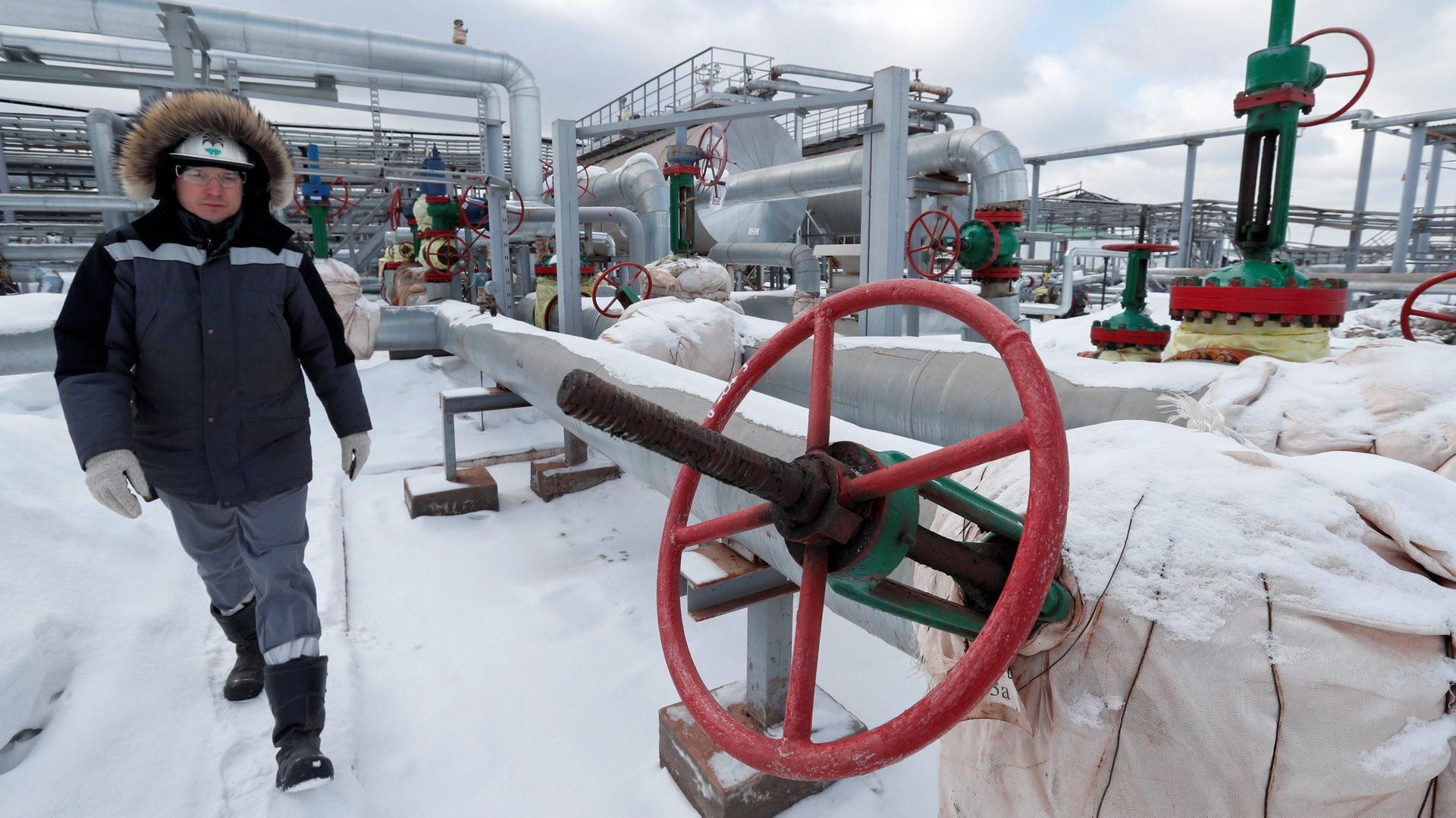As Russian oil turns toxic, Saudi Arabia could see a windfall
On Feb. 25, the day after the invasion of Ukraine, European countries and the US gave Russia approximately $700 million for natural gas. Include oil exports, and the number goes above $1 billion every day, making fossil fuels the most important source of income for president Vladimir Putin’s war efforts.


On Feb. 25, the day after the invasion of Ukraine, European countries and the US gave Russia approximately $700 million for natural gas. Include oil exports, and the number goes above $1 billion every day, making fossil fuels the most important source of income for president Vladimir Putin’s war efforts.
In the days since the invasion, those exports have only become more lucrative as oil and gas prices skyrocket and deliveries continue to flow unabated. Russia’s foes have few viable alternatives for fuel and will invariably suffer crippling price spikes if Russian supplies are cut off. Western governments haven’t yet imposed sanctions directly on Russia’s energy sector, but on March 2 the White House spokesperson said they are “very much on the table.”
But even without formal sanctions, a growing number of Russia’s business partners and customers are turning their backs and voluntarily shutting Russian fossil fuels out of the market. Middle Eastern oil producers are likely to benefit.
“The current realistic scenario is that a large portion of Russian crude oil, as well as refined oil products, will no longer be palpable to the market and create a supply deficit for the duration of the armed conflict,” says Louise Dickson, senior oil analyst at the intelligence firm Rystad Energy. “The country’s incursion into Ukraine has now made it one of the most toxic barrels on the market.”
Russian oil is selling at a record discount
This week several multinational oil and gas companies, including BP, Shell, Equinor, and Exxon, backed out of multibillion-dollar stakes in Russian state-owned drilling companies. Several European and US oil refiners also said they will no longer purchase Russian crude. That’s in spite of the fact that Urals, the main Russian oil benchmark, is trading at a record discount of more than $14 below the Brent international benchmark.
This is likely a business judgment rather than a moral one. Western companies don’t want to risk running afoul of the law while new sanctions are still being rolled out and, as fighting around Kyiv intensifies, could eventually target the energy sector directly.
While none of these changes have had a large impact on the volume of oil coming from Russia so far, exports to the US and Europe could dry up quickly once sales contracts that predate the war begin to run out in the coming weeks.
OPEC and refineries in Asia stand to benefit
The closest match for Russian crude oil is from Saudi Arabia and Iraq, Dickson says, and European refineries will look to them first. The Organization of Petroleum Exporting Countries will meet March 2 to decide whether to increase its production quota more than it previously planned, but officials there told Reuters they expect the group will hold steady.
The other beneficiary, Dickson said, will be refineries in Asia, which may be less scrupulous than their European peers and ”will have the opportunity to snap up barrels and capitalize on the strong discount,” she said.